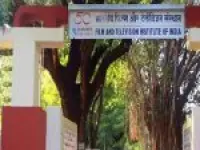
Ministry Of Education Invites Applications For The National Award To Teachers 2024
The Ministry of Education has invited applications for the National Award to Teachers 2024. Nominations can be submitted through the Rashtriya Puraskar Portal at awards.gov.in till June 20, 2024. The award recognises and celebrates the educators who are making a significant impact on their students and communities.
The selected awardees will be felicitated on September 5th, 2024 (Teacher”s Day). The mode of nomination is on a janbhagidari basis means self-nomination or institutional nomination by the heads of the higher educational institutes or by peers and colleagues where the teacher is employed.
To participate in the process a nominee should be a regular faculty member and should have at least five years of full-time teaching experience at the Undergraduate or Postgraduate level. The applicant should not be above 55 years.
There are two categories of nominating teachers for the recognition:
- Teachers of Higher Educational Institutions:
- Engineering & Technology, Architecture;
- Pure Sciences including Mathematics, Physical Sciences, Biological Sciences, Chemical Sciences, Medicine, and Pharmacy;
- Arts and Social Sciences, Humanities, Languages, Legal Studies, Commerce, Management.
2. Teachers of Polytechnic Institutions
However, the list of subjects is indicative and includes any other subjects/disciplines and emerging areas in higher education.
To showcase the contribution and impact of the teacher”s efforts a career profile of the teacher with a max of 800 words has to be submitted. The profile should mention whether the teacher is
- Creating an optimal learning environment for students through innovative curricular design, improved pedagogical approaches, promoting multidisciplinary and experiential learning, and effective assessment of learning outcomes
- Promoting educational technology to improve the quality of education including the development of digital educational resources
- Providing support for the physical and psychological well-being of students while also enhancing their cognitive abilities
- Fostering gender, SEDGs sensitization and inclusivity on campus, community engagement, outreach, and service, etc.
- Fostering environmental/climate sensitivity, multi-stakeholder adaptability, and a strong sense of nationalism
- Innovations/initiatives/Start-ups contributing towards better communities and nation
- Outcome of students’ feedback (24×7) and steps taken to improve delivery and effectiveness of classroom teaching and evaluation
- Efforts are taken to make students independent of rote learning and original thinkers
- Type of innovative questions (with open answers) and evaluation: online and offline













